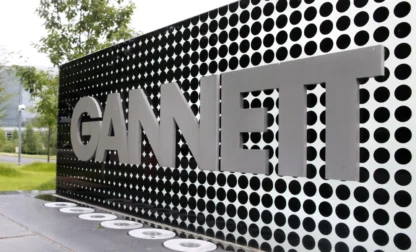WASHINGTON (AP) — FBI Director James Comey on Tuesday left open the possibility that an agent might again pose as a journalist as part of an investigation, though he said such a tactic ought to be rare and "done carefully with significant supervision, if it's going to be done."
Comey told reporters at a roundtable discussion that he was “not willing to say never” when asked if the FBI would swear off future use of the tactic in response to an Associated Press demand made last month.
The AP sought assurances from the Justice Department and the FBI that impersonation would not be used again following revelations that an agent in Seattle posed as an AP journalist in 2007 during an investigation into bomb threats at a high school.
“I’m not willing to say never,” Comey said. “Just as I wouldn’t say that we would never pose as an educator or a doctor or, I don’t know, a rocket scientist.”
In the Seattle case, details of which Comey revealed in a letter to The New York Times, an FBI agent posed as an AP reporter to help catch a 15-year-old suspected of making bomb threats at a high school in Washington state.
The agent asked the suspect to review a fake AP article about threats and cyberattacks directed at the school to ensure “that the anonymous suspect was portrayed fairly,” Comey wrote in the letter. The bogus article contained a software tool that could verify Internet addresses. The suspect clicked on a link, revealing his computer’s location and Internet address, which helped agents confirm the suspect’s identity.
The news cooperative said in a letter to the federal government last month that such a ruse degraded AP’s “legacy of objectivity, truth, accuracy and integrity” and belittled the value of free press rights.
Comey said that, as far as he knew, no similar episode has occurred since, though he said he continued to believe it was appropriate in that particular case.
“I think it’s something that ought to be done carefully with significant supervision if it’s going to be done,” he said. “But I’m not in a position to say never.”



